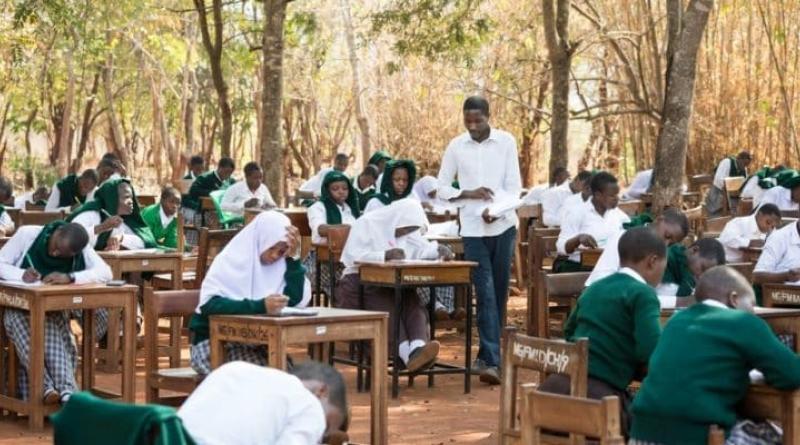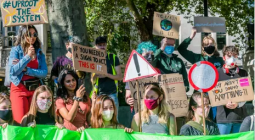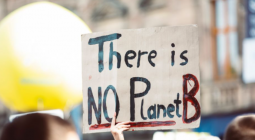Education systems facing the challenge of climate change: where is Africa located?

Isn't the worsening of climate change also the price of people's ignorance of the effects of this global phenomenon? AFRIK 21 is exploring this question during African Climate Week (ACW), which takes place from September 4 to 8, 2023 in Nairobi, Kenya. In this article, we will take stock of the consideration of education by African governments in the fight against climate change. Then we will question the resilient nature of the education systems already in place, before presenting the model resilient education system. The objective is ultimately to promote quality, relevant and equitable education, protect terrestrial ecosystems, and promote climate justice.
Education is widely recognized as a key factor in tackling climate change in major international agreements, such as the United Nations Framework Convention on Climate Change (UNFCCC), the Paris Agreement and the Global Goals. sustainable development (SDG). Is this also the case for States, particularly African ones? The reality varies greatly from one sub-region to another.
For example, in Central Africa, more precisely in Cameroon, common education on climate change remains to be developed and standardized. “From SIL (pre-elementary, Editor’s note) to CM2 (pre-secondary, Editor’s note), we educate children in cleanliness, that is, cleaning their environment, throwing waste in the trash in the framework of the course entitled ' Citizenship Education'. We generally invent practical cases since a textbook dedicated to environmental protection does not exist to date ,” says Jacqueline Fotsing, nursery school teacher at the Essos Public School in the fifth arrondissement of Yaoundé.
It is really at the secondary cycle level that climate issues begin to be raised, and there again they are brought within the framework of a subject which is geography, particularly in the 6th and 5th grade classes with modules such that “the module (environmental preservation) where students are educated in environmental protection, adaptation to climate change and the adoption of ecological behaviors, namely reforestation, protection of parks and natural areas, etc. », indicates the Cameroonian Ministry of Secondary Education (Minesec). And as the student progresses in his secondary education, education on climate change will become more precise, still without a real textbook dedicated to this phenomenon.
At the higher cycle level we will go up a notch with training entirely devoted to the issue of climate change as is already the case at the University of Dschang where a professional master's degree "Climate change, biodiversity and circular economy" (CCBEV ) has been open since 2015. This state university is one of the first to offer this training in Cameroon.
Faced with the need to develop mitigation and adaptation skills, Tunisia has also decided to include education as a resilience strategy. And recently, the Tunisie Recycling association launched a training program on climate change and the circular economy of which the German Agency for International Development Cooperation (GIZ) is a partner.
Strengthening the capacities of schools in waste management in Tunisia in the face of the climate challenge
The said training, initiated by Tunisie Recyclage, will be implemented as part of the Climate Protection through the Circular Economy in Tunisia ( ProtecT ) project, in two batches. The first will equip students in the governorates of Kairouan, Gafsa and Bizerte with good practices for selective sorting of solid waste from the start of the 2023-2024 school year. This approach consists of separating waste at source, according to its nature, in order to avoid contact and contamination.
Furthermore, learners will become familiar with the phenomenon of climate change which results to a certain extent from the poor management of waste causing emissions of methane, a greenhouse gas (GHG) 80 times more powerful than carbon dioxide. of carbon (CO 2 ) and which represents a fifth of global GHG emissions according to the UN. The international organization adds in a report published in May 2021 that a reduction in methane emissions by 45% would help avoid a rise in global temperature.
It is in this wake that the University of Sfax , still in the country of Kaïs Saïed, will train students from the start of the 2023-2024 academic year in the sorting and recycling of solid waste, as well as in the development of technological solutions adapted to Pollution. The training which will take place within its Higher Institute of Biotechnology (ISBS) will welcome between 15 and 20 students for the first year.
If Central and North Africa increasingly recognize that education provides solutions to climate change, this is also the case for Southern Africa. In the sub-region, countries are now working together to ensure that teachers are prepared to address this and other sustainability challenges in their teaching. South Africa also wants to position itself as the hub for climate training.
Training to support a low-carbon economy
This is how the University of Stellenbosch became in June 2021, the first university to host a school of climate studies on its campus. This will offer transdisciplinary programs to support climate change resilience and a low-carbon economy.
South Africa intends to extend this project to all its universities, thus becoming a reference in this field on the African continent, underlined in 2021 the South African Minister of Higher Education, Science and Innovation, Blade. Nzimande. Thus, the shift towards a green economy is expected to create new careers in engineering, manufacturing, agriculture, renewable energy and research into the fundamental drivers of climate change in the arc- in sky.
“There are many other good practices on the continent. In West Africa, Ghana has revised its national curriculum to strengthen climate change education, and in Seychelles, an archipelago located in East Africa, climate education is addressed in all schools as part of the efforts towards green schools ,” says Won Jung Byun, program specialist in the Education for Sustainable Development (ESD) section at the headquarters of the United Nations Educational, Scientific and Cultural Organization (Unesco). The manager underlines that the commitment “to make climate change education their priority thematic area” was made by more than 90 countries, including African ones, during the United Nations summit on the transformation of education in 2022.
To respond to this great interest among countries in creating climate-resilient education systems, the Greening Education Partnership was launched, calling for action in four priority action areas: greening schools, greening school curricula, greening teacher training and education systems capacity, and greening communities to help prepare every learner for climate change by 2030.
Educate about climate change at school, but not only…
But teachers alone will not do this work. While schools are the starting point, it is also important to take advantage of the non-formal and informal learning that takes place outside of schools. “For example, many civil society organizations (CSOs) support climate change education in communities, such as the NaDEET center in Namibia, water conservation activities in the Enkanini settlement in Cape Town in Africa of the South, or even the activities of scouts in Kenya ,” explains Won Jung Byun of UNESCO.
According to the international specialist institution based in Paris, France, cities also support the climate resilience of communities through lifelong learning at the local level, as shown by African municipalities engaged in the Global Cities Network . UNESCO learning (from Cameroon, Kenya, Malawi, Nigeria and Guinea) Also, the greening of technical and vocational education and training through green skills is essential to ensure that businesses adapt and lead climate-resilient practices in the future.
If many countries now guarantee, in addition to safe education protected against the effects of climate change, resilient education, others are still lagging behind.
Unesco's call to action
To move forward, each country is invited to create a national initiative on ESD, which engages diverse stakeholders in society, including children and young people, parents, policy makers, teachers, and the private sector, in accordance with the ten-year global framework entitled “ESD for 2030” launched by UNESCO. The objective of this action at the national level is to accelerate the achievement of the SDGs by this deadline through education, promoting understanding of sustainable development, encouraging critical thinking and action.
“By 2030, we want to put in place quality policies in education and sustainable development, transform our schools into innovative and climate-resistant places of learning, support teachers by offering them training and adequate materials so that they can teach about sustainability and climate change, ensure that young people are empowered and engaged in the decision-making process, and thereby transform our communities to become more sustainable in environmental, social and economic view ,” insists Won Jung Byun, specialist in UNESCO’s ESD program.
This ideal of a model resilient education system, if successful, would make it possible to protect and promote quality, relevant and equitable education; protect terrestrial ecosystems; and promote climate justice in Africa. On the continent more than in others, climate change is accompanied by unprecedented effects: rising temperatures, reduction in water reserves, loss of biodiversity, degradation of ecosystems, etc.





